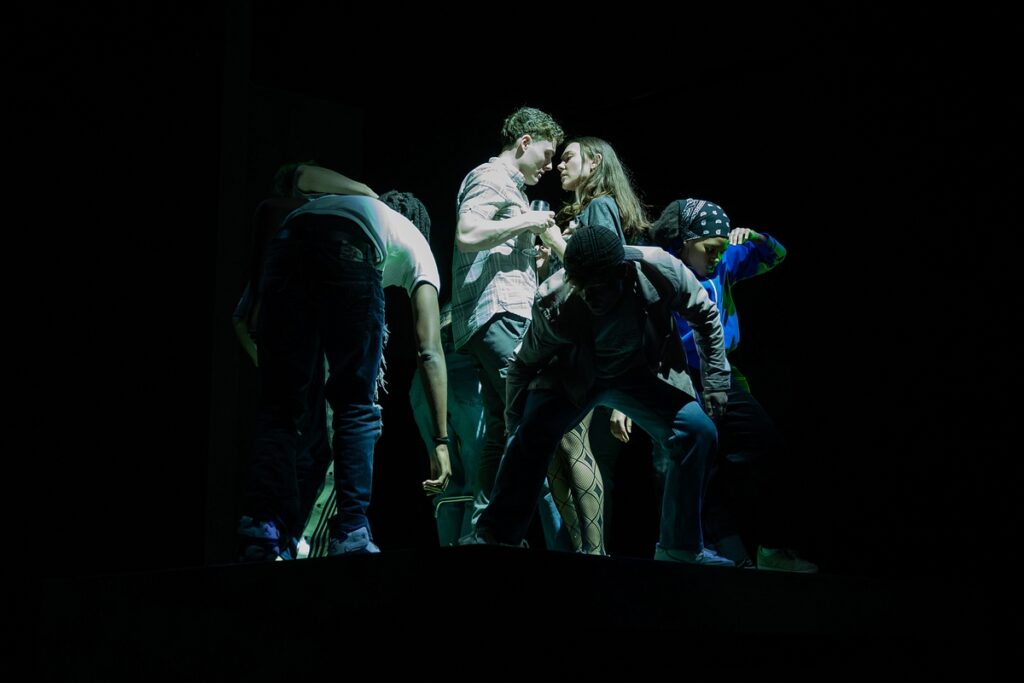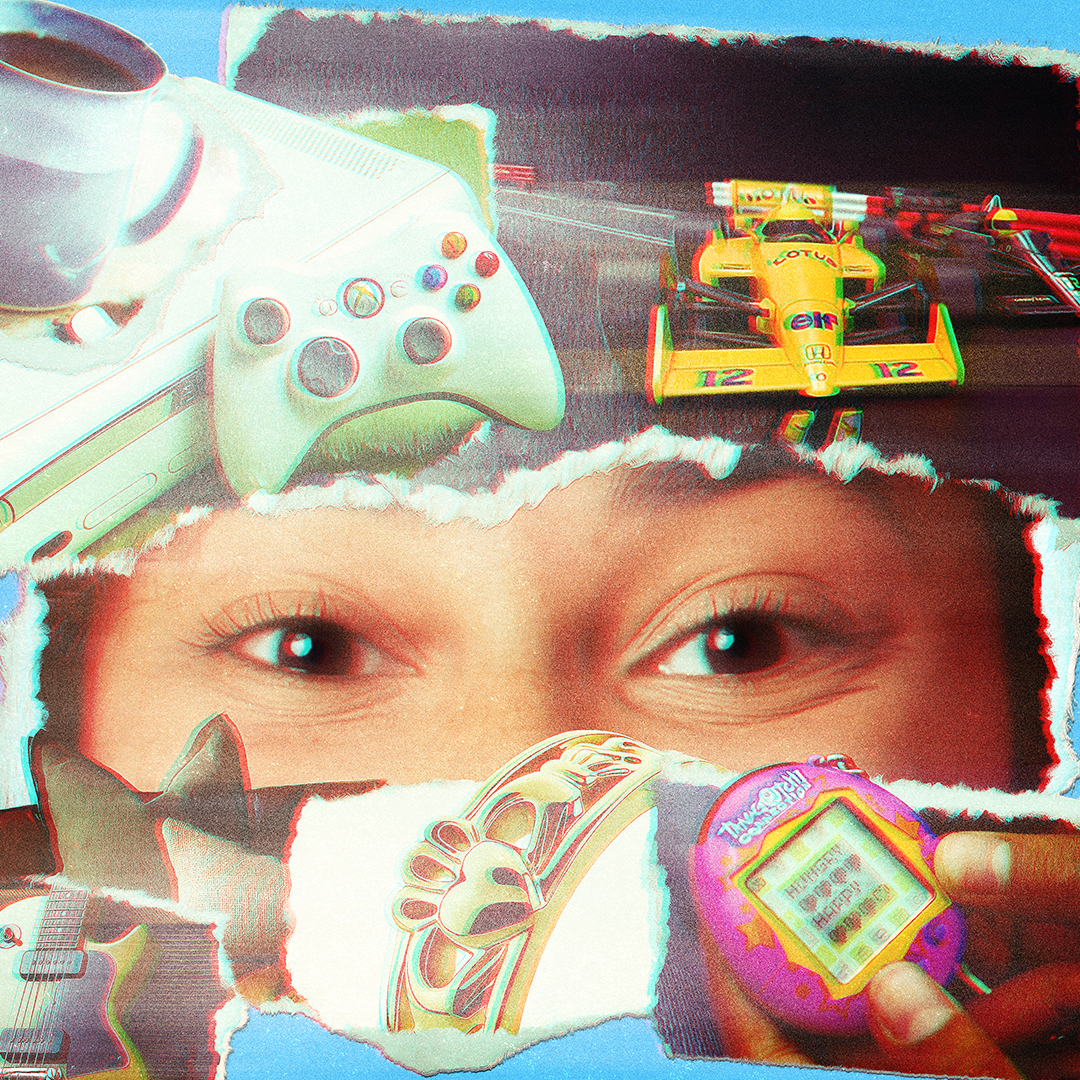anthropology, which opened for previews at Hampstead Theatre yesterday, is the thrilling new play about AI by US playwright, Lauren Gunderson.
It sees a tech expert turning to AI while grieving her younger sister who has been missing, presumed dead, for the past year. Directed by Anna Ledwich, the production stars MyAnna Buring and Dakota Blue Richards.
Richards came to prominence at just 13 years old, starring as Lyra Belacqua in the 2007 film The Golden Compass alongside Nicole Kidman and Daniel Craig before going on to appear in television shows Skins and Endeavour. She made her stage debut in Tom Stoppard’s Arcadia ahead of appearances in A Streetcar Named Desire and What the Butler Saw at the Curve, Leicester.
We caught up with Richards to hear about the production, the unsettling questions AI raises and how theatre compares to her on-screen work.
Q&A with Dakota Blue Richards.
What can you tell us about anthropology and what it’s like to be playing Angie?
anthropology, and the character of Angie in particular, is entirely unlike anything I’ve ever worked on before. On top of all the typical work that goes into building a character – understanding their backstory and unpicking their relationships with the other characters – I have to think about how an AI would process and present that information. Much of the work for me has been about striking the balance between the technology and humanity of her character, and the story as a whole. Truthfully, that has occasionally felt a little overwhelming, especially as with brand new writing there’s always some time spent workshopping the script, but I have felt so supported through this process by Anna (Ledwich, the director) and Lauren (Gunderson, the writer), who are both incredibly astute and insightful, and the fantastic cast. It’s been a really interesting, educational and fun experience.
What was it that attracted you to the production?
It’s such an interesting and compelling story and so rare to see something in this genre with an exclusively female cast. I knew it would be a challenge – something to really sink my teeth into. I always enjoyed working in theatre and I was excited to return to the stage. Hampstead is a beautiful, intimate space and felt like a good fit for both this show and for me. I’ve never worked on a modern play before, nor have I been part of an original cast in a theatre production, and I was excited to experience the freedom of that. Friends of mine who had worked with Anna spoke very highly of her – all true as it turns out – and I always relish the opportunity to work with female directors.
 |
| In rehearsals for anthropology. Photo: The Other Richard |
AI is fast becoming one of the most debated topics of modern times – how far does the play go to unpick the debate?
anthropology is a deeply personal and human story, but it does raise some interesting, and slightly unsettling questions about AI and its capacity for compassion and deception. It’s been really interesting learning more about this subject. I think what often gets forgotten, by both our characters and society in general, is that while AI is exceptionally good at emulating human behaviour, it does not ‘feel’ or experience the psychological or spiritual impulses that drive those same behaviours in humans. It is neither caring nor malicious because it is not sentient. It has no intention to obfuscate or withhold because it has no intention in the human sense of the word. Or, at the very least, not yet… AI is an incredibly powerful tool, but it is not without its limitations and flaws. And, like any tool, it can be used for good or evil.
How does theatre compare to your work in film and television?
There are so many differences. Perhaps the biggest, and most alluring for me, is the time allocated to rehearsing. I enjoy the process of unpicking a character, researching elements of their life that are different to my own, and discussing their experiences and behaviours with a team of insightful, passionate people. That time is rarely available on film productions and almost never on television. While I love film as a medium, I appreciate having the time to build a character and deliver – what feels to me, at least – a more informed and considered performance. Also, there’s something really special about sharing the experience of a play with an audience; telling a joke and hearing the laugh or feeling the atmosphere of the room change when something unexpected happens. It’s a delightful experience.
What do you hope audiences will take away from anthropology?
I hope that perhaps it gives audiences a new perspective on AI and how it can be used, and I hope that it reminds people of the importance of tangible humanity. That there’s more to connecting with someone than liking a post on their Instagram. I hope it encourages people to reach out and engage with the people they care about in the real world, rather than just over texts and social media. But mostly I just hope people enjoy watching it.
anthropology is at Hampstead Theatre from 7 September – 14 October.















